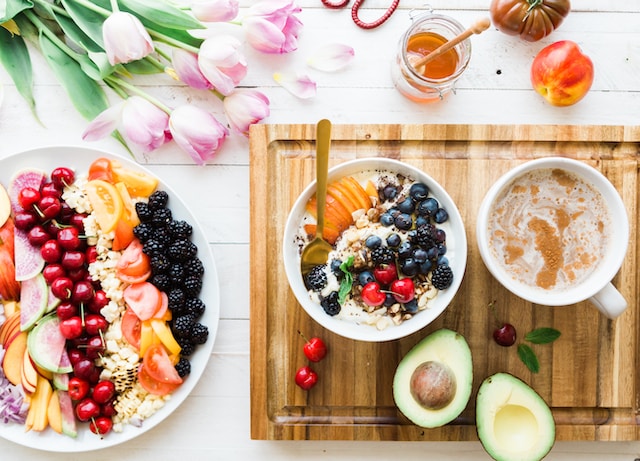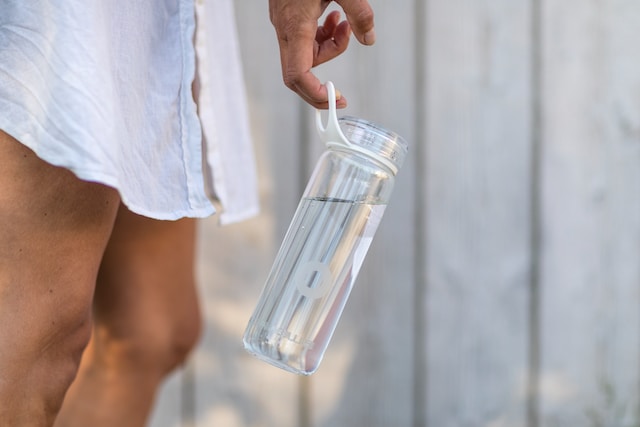
Did you know that about 30% of people in the U.S. have eczema?
Eczema, also called atopic dermatitis, is a lasting problem that makes your skin itchy, dry, and sometimes sore.
Even though health professionals aren’t exactly sure why it happens, doctors use their best information to help figure out and treat eczema.
Many health experts recommend changing what you eat to help with your eczema. This thought comes from a study that found that many people with eczema are also allergic to certain foods.
But it’s important to know that changing your diet won’t eliminate atopic dermatitis. However, by adjusting what you eat, you might be able to make your symptoms not as bad.
Factors that contribute to eczema:
Eczema is indeed a complex process that involves multiple factors.
- First, there can be issues with your skin’s protection, like a barrier that doesn’t work well.
- Second, your immune system, which is like your body’s defense system, might act up and cause problems.
- Third, different things in the world around you can also play a role.
So changing what you eat might help with eczema because some foods can make your body react in a way that causes swelling or unwanted immune reactions in certain people.
And just like some people become allergic or sensitive to things that make their bodies react, some folks can also have allergies or problems with certain foods that make their eczema act up.
Therefore, addressing these dietary triggers can indirectly influence the immune system’s response and overall inflammation, potentially leading to fewer eczema flare-ups.
Is there a connection between diet and eczema?
Diet doesn’t always directly cause eczema, but sometimes people can be sensitive or allergic to certain things that make eczema happen.
If this is the case, you must determine which foods are worsening your eczema. Then, you can try changing your diet to see if it makes your skin feel better.
Here is how changing your diet can reduce your eczema:
1. Identify trigger foods
For some people with eczema, certain foods can make their skin problems worse. These foods could be:
- dairy products
- eggs
- nuts
- soy
- wheat
- certain fruits
To figure out which foods might be causing your eczema, write down what you eat in a diary and see how your skin reacts afterward. This can help you find out what’s triggering your eczema.
2. Reduce inflammation
Eating certain foods can help lower the inflammation in your body, which can make eczema less severe.
Foods with omega-3 fatty acids (like fish, flaxseeds, and chia seeds), antioxidants (found in colorful fruits and veggies), and turmeric can fight inflammation and improve your eczema.
3. Hydration
Drinking lots of water is important to keep your skin in good shape. Proper hydration can help prevent dryness, a common trigger for eczema flare-ups.
You can make drinking water more fun by using a motivational water bottle. These bottles have time markers to show how much to drink at different times. It’s like a game to finish each section before time’s up. Some even have motivating messages to keep you going.

4. Probiotics
Probiotics, which are helpful bacteria supporting your gut, might aid in reducing eczema. Some research hints that a balanced gut with good bacteria could help ease eczema symptoms.
Foods like yogurt, kefir, sauerkraut, and kimchi are packed with these helpful probiotics. So, including these foods in your diet might offer a hand in managing eczema.
5. Avoid allergens
If you’re allergic to certain foods, avoiding them can help your eczema. Allergies can make eczema worse, so staying away from foods like milk, eggs, peanuts, tree nuts, soy, wheat, and fish can give your skin relief from flare-ups.
6. Maintaining a balance diet
Eating a well-rounded diet can make eczema better. Having a mix of different foods is important for your health, including your skin. It gives you vitamins like D and E, plus minerals like zinc and selenium that help your skin stay strong.
When it comes to eczema, certain diets might be extra helpful.
- The Mediterranean diet, which includes lots of fruits, veggies, fish, and healthy fats like olive oil, could be great.
- Also, the anti-inflammatory diet, focusing on foods that fight inflammation, might work well for some people with eczema.
7. Stay cautious with elimination diets
While cutting out certain foods can be beneficial, it’s crucial not to remove whole food groups without expert advice.
Before making big changes to your diet, especially if you have existing health issues, it’s a good idea to talk to a healthcare provider or a registered dietitian.
They can guide you in the right direction and make sure you’re making choices that are safe and healthy for you.
8. Individual variations
Understanding that the impact of dietary changes on eczema can differ for each person is crucial.
What helps one person might not have the same effect on someone else. It’s a good idea to collaborate with a healthcare expert to create a personalized strategy for managing eczema through dietary adjustments.
This way, you can receive tailored guidance that considers your unique needs and ensures safe and effective results.
Will a diet plan help control eczema?
Remember, there’s no magic diet to cure eczema, but changing what you eat can make your eczema feel better. Just like everyone has different favorite foods, different things can make eczema worse for different people.
Some foods might make eczema worse for some but not for others. Eating foods that fight inflammation and are good for your gut can also help make your eczema not as bad.
Leave a Reply